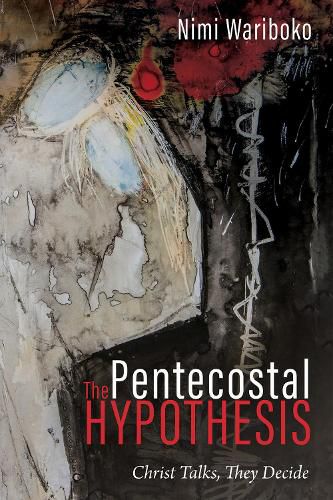Readings Newsletter
Become a Readings Member to make your shopping experience even easier.
Sign in or sign up for free!
You’re not far away from qualifying for FREE standard shipping within Australia
You’ve qualified for FREE standard shipping within Australia
The cart is loading…






This title is printed to order. This book may have been self-published. If so, we cannot guarantee the quality of the content. In the main most books will have gone through the editing process however some may not. We therefore suggest that you be aware of this before ordering this book. If in doubt check either the author or publisher’s details as we are unable to accept any returns unless they are faulty. Please contact us if you have any questions.
The Pentecostal Hypothesis is the capacity to resist conventional wisdom in social actions.
On a daily basis Pentecostals deploy or enact this capacity through the use of the formula: It does not make sense, but it makes spirit in their decision-making processes. This is an alternate way of knowing that is keyed to a particular interpretative understanding of Jesus Christ as constitutive of and normative for the good decisions relevant to human flourishing. The book offers a critical-philosophical analysis of the social-ethical implications of this hypothesis intended for private decisions and social actions. This text is ultimately a critique of Pentecostal reason. In this book Wariboko explores the epistemological dimensions of everyday Pentecostal Christology, their interpretation of Jesus’s character and nature as epistemology. For Pentecostals Jesus did not have an epistemology, but the story of his life as a whole is an epistemology. For them the validity of a truth claim is always (in)formed by the story of Jesus that claims them, the story that gives them the meaning and courage to affirm their decisions without fear of being contradicted by Enlightenment rationalism. What kind of normative sway does this orientation to modernity have over Pentecostals’ pattern of thought? This book configures the response to this question with profound insights into the convergence of epistemology and Christology within the impelling matrix of a provocative social ethics. The epistemological in this book is not about the that of knowing, but the how (the performative dimension) of knowing, which is affective, emotive, and an embodied practice.
The Pentecostal Hypothesis is the capacity to resist conventional wisdom in social actions.
$9.00 standard shipping within Australia
FREE standard shipping within Australia for orders over $100.00
Express & International shipping calculated at checkout
This title is printed to order. This book may have been self-published. If so, we cannot guarantee the quality of the content. In the main most books will have gone through the editing process however some may not. We therefore suggest that you be aware of this before ordering this book. If in doubt check either the author or publisher’s details as we are unable to accept any returns unless they are faulty. Please contact us if you have any questions.
The Pentecostal Hypothesis is the capacity to resist conventional wisdom in social actions.
On a daily basis Pentecostals deploy or enact this capacity through the use of the formula: It does not make sense, but it makes spirit in their decision-making processes. This is an alternate way of knowing that is keyed to a particular interpretative understanding of Jesus Christ as constitutive of and normative for the good decisions relevant to human flourishing. The book offers a critical-philosophical analysis of the social-ethical implications of this hypothesis intended for private decisions and social actions. This text is ultimately a critique of Pentecostal reason. In this book Wariboko explores the epistemological dimensions of everyday Pentecostal Christology, their interpretation of Jesus’s character and nature as epistemology. For Pentecostals Jesus did not have an epistemology, but the story of his life as a whole is an epistemology. For them the validity of a truth claim is always (in)formed by the story of Jesus that claims them, the story that gives them the meaning and courage to affirm their decisions without fear of being contradicted by Enlightenment rationalism. What kind of normative sway does this orientation to modernity have over Pentecostals’ pattern of thought? This book configures the response to this question with profound insights into the convergence of epistemology and Christology within the impelling matrix of a provocative social ethics. The epistemological in this book is not about the that of knowing, but the how (the performative dimension) of knowing, which is affective, emotive, and an embodied practice.
The Pentecostal Hypothesis is the capacity to resist conventional wisdom in social actions.